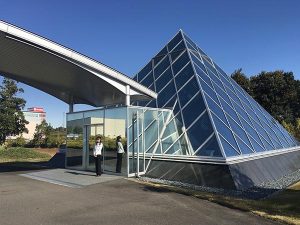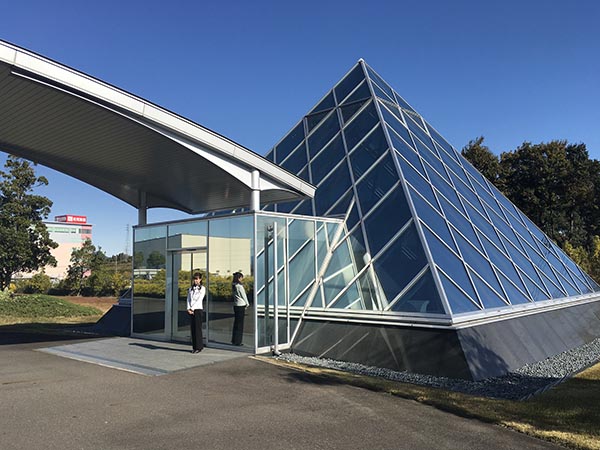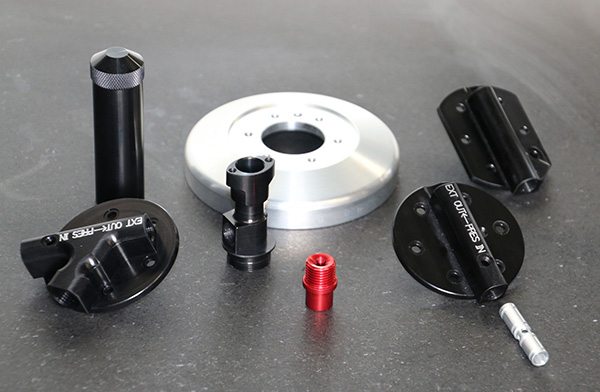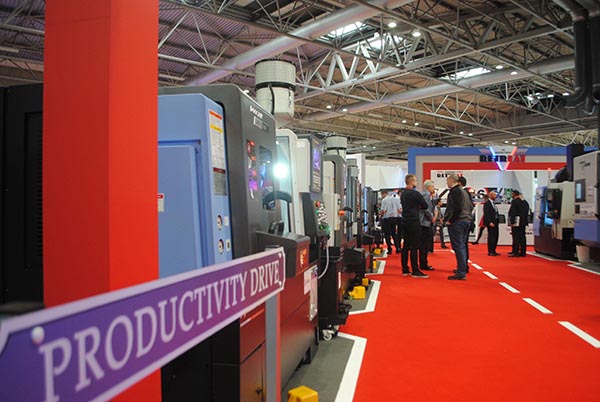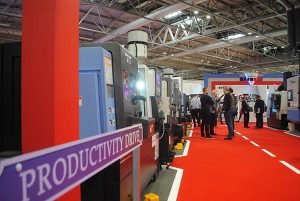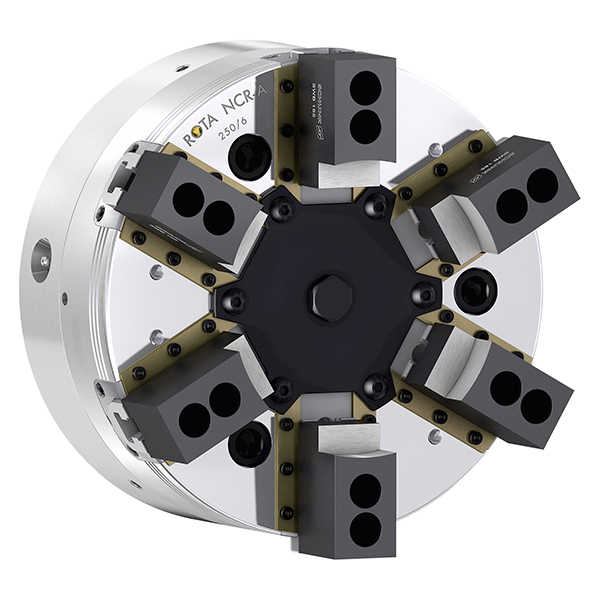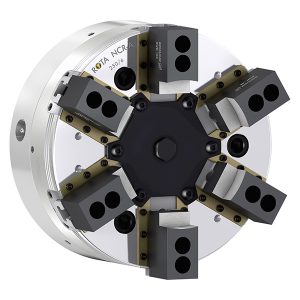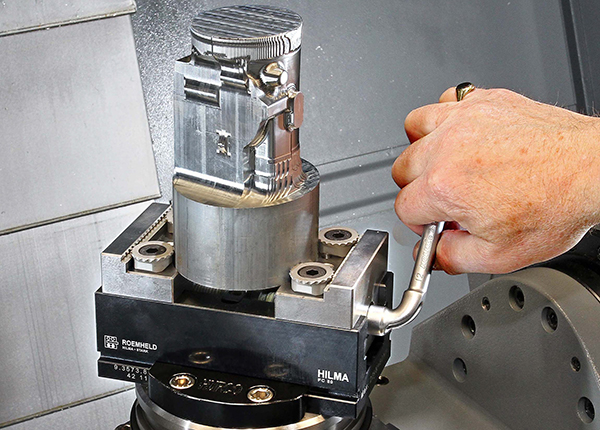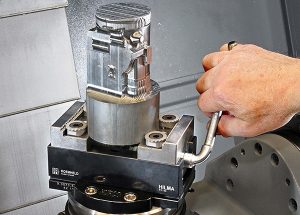Leaving the comfort of employment and starting a business is a decision loaded with emotion and taken with cautious trepidation. For the two ex-aerospace engineers that founded GD Precision, re-mortgaging their homes to finance the leap emphasises their confidence and passion. Some 17 years later and the decision has paid dividends for the West Sussex entrepreneurs.
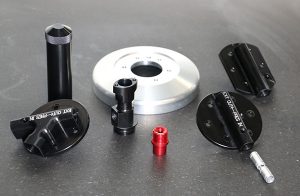
Now operating from a 4400 sq ft facility in Arundel, the company has seven staff, a host of Mazak, XYZ and Dugard CNC machine tools, and a list of clients that span across the Formula One, aerospace, transport and medical industries. Like most subcontract machine shops, GD Precision is continually striving for cost reductions, efficiency, productivity and quality. Luckily, the company has many of these facets covered by cutting tool supplier, Industrial Tooling Corporation (ITC).
Recalling life before the cold call of ITC sales engineer Dave Cleeve some 10 years ago, company director Dale Buckthorpe says: “In the early days we were conscious of our spending and watched every penny. We would buy low-cost tools from a variety of suppliers, and when the tools were near burn-out, we would get buckets of tools re-ground. Of course, this was a false economy. When Dave Cleeve came in with tools that were considerably more expensive than the cheap tools we were using, we took some convincing.”
Taking up the story, fellow director and head of the milling department, Gary Short, says: “Dave from ITC reviewed our workload and offered us the 3081 series square-end, three-flute, solid-carbide end mill. At the time, we were using a 20 mm diameter ripper cutter from another supplier to machine an aluminium component at the full 20 mm width – at a depth of 0.5xD – applying a low feed rate. Taking-on-board Dave’s expertise, we applied the 3081 series at full flute depth with smaller cuts, at speeds and feeds that were remarkably high. We were sceptical, but we trusted Dave and immediately realised cycle time reductions of 50%.
“Not only did we achieve 50% cycle time reductions, but the surface finishes and tool life were anything from four to five times better than our previous tools,” he continues. “While we instantly realised the benefits of paying more for tools from a premium brand manufacturer like ITC, we also recognised the technical expertise was invaluable.”
This success noted the arrival of a full line of 3081 end mills from 6 to 20 mm diameter for everything from roughing to finishing applications.
“The 3081 series blew our previous tools away,” says Short. “It’s a general purpose end mill with a high helix that we now use for just about every aluminium machining task. We have recently been machining dental mould tools and the 3081 series is achieving 70+ hours of trochoidal machining on high-grade HE15 aluminium.”
ITC’s 3081 series soon became the tool of choice for all aluminium machining tasks at GD Precision, giving the directors confidence to trial further ITC tools. This followed in the guise of the ITC Widia VariMill range of TiAlN coated four-flute end mills for machining stainless steel and exotic materials. Instantly outperforming previous tools, the VariMill proved every bit as successful on challenging materials as the 3081 showed on aluminium.
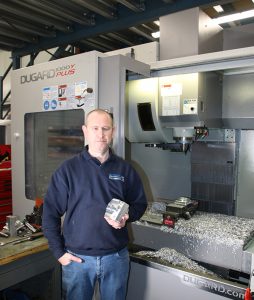
“It took us a while to adjust to the VariMill’s high speeds and feeds, but we are now hitting jobs faster with smaller cuts while pulling 30-40% less horsepower,” says Short. “We opted for more trochoidal milling and ITC was integral in the evolution of our machining strategies. With the VariMill generating 30-40% productivity improvements, and tool life gains of beyond 50%, we have phased out the majority of tooling from alternate suppliers.”
For dedicated high-speed roughing of challenging materials, GD Precision is now utilising the ITC 6051 series of six-flute centre-cutting end mills. As Short recalls: “The long length 6051 has a 60 mm flute length that permits higher material removal rates with excellent reach characteristics. There is very little depth in the flutes of the 6051 series and this increases strength and eliminates vibration, enabling us to run at 3 to 4 m/min. On materials like stainless, we are machining at feed of 0.2mm per tooth using the full 60 mm flute length.”
The success of the 3081 series, the VariMill and the 6051 series has seen GD Precision continually implement new machining strategies and tooling lines from ITC. Recent additions include the 4071 series for deburring and chamfering, 4011 series radius tools and 2001 series necked back tools for 3D and profile machining.
A newly added Dugard Eagle 1000+ machining centre with a Big-Plus logo on the spindle housing, is something which did not go unnoticed by Cleeve, who recommended that GD Precision should purchase a Big Kaiser face and taper contact Hi-Power milling chuck to complement the spindle interface.
“When Dave recommended we try the BBT40 Hi-Power milling chuck, we trusted his judgement based on previous results – we were not disappointed,” says Short. “The Dugard machines are very robust and stable, but we were struggling to reach ITC’s recommended speeds and feeds. As soon as the Big Kaiser Hi-Power milling chuck arrived, we knew the weak link was our old milling chucks. With the Big-Plus we can reach the recommended speeds and feeds with no chatter and vastly improved surface finishes. Without the Big-Plus chuck, we have to reduce our cutting parameters by at least 25%.
“The Big-Plus Hi-Power has improved our tool life by at least 20%, increased our machining performance and cutting parameters by over 25%, and the run-out is well below 5 µm. In fact, we don’t have equipment accurate enough to measure how little run-out there is.
“The Big-Plus milling chuck allows us to run the VariMill 12 and 16 mm diameter tools with a trochoidal strategy on stainless steel at machining feeds of 100 m/min and a spindle speed of 2000 rpm. In fact, since applying the chuck, we have realised there is little point in buying high-end tools without this rigid system. By using the chuck with trochiodal strategies, we have reduced our cycle time on dental mould tools from 12 minutes to 6 minutes 45 seconds, a 45% cycle time improvement.”
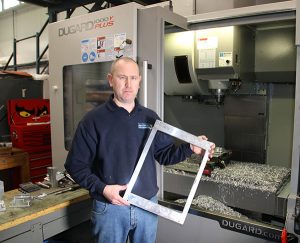
Despite all the strategic, purchasing and manufacturing enhancements instigated by ITC, there is one habit the company has not dropped, as Short concludes: “We still collect boxes of used solid carbide end mills. The difference now is that ITC is a UK manufacturer, and we are returning the cutting tools to the OEM for regrinding. The benefit is that ITC has the geometries of all its tools and the regrinds are conducted on the same machines that produced them in the first place. This means that we get our re-ground tools returned in an ‘as-new’ condition at a fraction of the cost of new tools.”
For further information www.itc-ltd.co.uk
